*For a look at the patterns that have emerged in the police shootings of unarmed black citizens since the shooting of Michael Brown in Ferguson click here.
. . .
Systematic racism has been made evident again in the shooting of an unarmed young Black man, Michael Brown, by a police officer in Ferguson, Missouri. Pulling stories directly from recent news headlines is one way to get students’ attention and demonstrate the abundant relevance of the sociological perspective. The New York Times has a timeline of the events that serves as a useful starting point (from the mainstream media) to share the events with students that may have not kept up with the story.
The community of Ferguson, Missouri (the site of the shooting) has responded with on-going mass protests.
Ferguson cannot be understood in a vacuum. These events are rich with sociological issues – inequality and poverty, racial profiling, the militarization of the police, protester and police interaction, social media (#Ferguson and hashtag activism) and the “criminalization of Black male youth”.
Looking first at the disproportionate levels of poverty and subsequent exclusion from the economy of many Blacks in the US, Brookings, a Democratic leaning think tank, analyzed census tract data of changes in the poverty rates in Ferguson (and the surrounding area) between 2000 and 2008-2012. They state:
“But Ferguson has also been home to dramatic economic changes in recent years. The city’s unemployment rate rose from less than 5 percent in 2000 to over 13 percent in 2010-12. For those residents who were employed, inflation-adjusted average earnings fell by one-third. The number of households using federal Housing Choice Vouchers climbed from roughly 300 in 2000 to more than 800 by the end of the decade.
Amid these changes, poverty skyrocketed. Between 2000 and 2010-2012, Ferguson’s poor population doubled. By the end of that period, roughly one in four residents lived below the federal poverty line ($23,492 for a family of four in 2012), and 44 percent fell below twice that level.”
The community of Ferguson, one of many that have been disproportionally hurt by the economic downturn, has experienced long term poverty, and this undoubtedly was part of the mass frustration that contributed to the emergence of the protests. See Brookings web site for their full story.
However, the key grievance that seems to have inspired mass protest is the relationship between the police and the community. In previous posts I have explored the disproportionate number of Blacks incarcerated, arrested for drugs, and racially profiled under programs such as “Stop and Frisk”. While the population of Ferguson is 63% Black, 90% of the police officers are White. As noted by the New York Times (see below), Blacks in Ferguson are disproportionally stopped and arrested by the predominantly White police force.
An FBI and federal justice department investigation is on-going and reports of the events present conflicting stories – an eye witness that was with the victim at the time says Michael had his hands up, but slowly emerging (which certainly adds to the distrust) police accounts argue that an unarmed Michael was in a confrontation with the officer. The job of the police is to make arrests and allow a court system to decide guilt. The police later released images from a video of a suspect robbing a convenience store (no weapons were used). Let’s just say it was Michael (that would still have to be proven). A police officer should be able to subdue a suspect without shooting him six times. In essence, (presuming guilt instead of innocence) Michael was sentenced to death for supposedly stealing a handful of cigars.
The police responses to the protests in Ferguson have exposed the results of the militarization of municipal police forces. Images of police in full military gear, helmets, armored vehicles, sharp-shooters, high caliber weaponry, and military fatigues certainly garnered the attention of the media.
The distribution of military weaponry to local police departments began after the terrorist attacks of September 11th under the guise of preparing communities for foreign attacks. Now we see this weaponry and accompanying tactics used in our own communities. The saying, “If all you have is a hammer, everything begins to look like a nail” comes to mind.
This weaponry has been widely distributed.
Click on the map above to have students go to an interactive version that allows them to see the distribution of the weaponry in their county. For example, I can see that in Cook county, home to my city of residence, Chicago, the police have obtained over 1200 assault rifles and even three “mine resistant” vehicles.
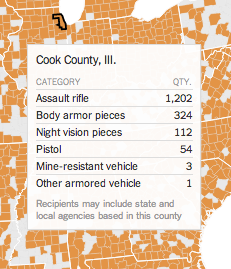
The use of these weapons and tactics is not limited to Ferguson. In June of 2014, the ACLU published the following report:
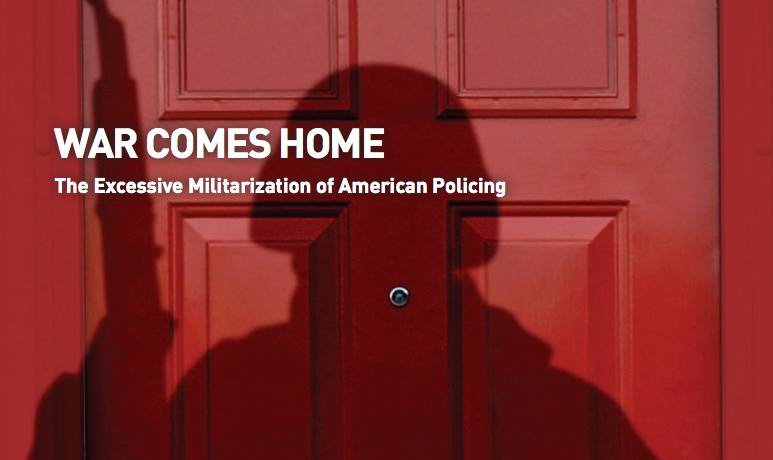 In it they report the increased use of SWAT tactics for search warrants for low level drug investigations and that the “militarization of policing encourages officers to adopt a ‘warrior’ mentality and think of the people they are supposed to serve as enemies” (p.3). These tactics and mentality have resulted in the deaths of innocent people, including infants and children (see the report for numerous stories).
In it they report the increased use of SWAT tactics for search warrants for low level drug investigations and that the “militarization of policing encourages officers to adopt a ‘warrior’ mentality and think of the people they are supposed to serve as enemies” (p.3). These tactics and mentality have resulted in the deaths of innocent people, including infants and children (see the report for numerous stories).
Do these tactics pay off? According to the ACLU’s research, the majority of the time they do not. Drugs are only found about a third of the time.
And these tactics are used disproportionately in cases involving racial and ethnic minority suspects.
So, was this an isolated event among two individuals – the officer and Michael Brown? No. Sociologically, the impoverished community context likely leads to community members feeling disconnected from the rewards of mainstream society, the stereotyping of Black males as “thugs” and criminals likely added to the officer’s fear of Michael and activated socially constructed cognitive cues of “danger”, the community’s response is generated by local and national racial profiling by the police and a lack of minority representation among the officers, and the type of police response to the protests was a result of the militarization of the police driven by the “war on terror” and the power of the military industrial complex in our economy (and foreign policy).
Teach well, it matters.
Additional reading:
Elijah Anderson, Editor. 2009. Against the Wall: Poor, Young, Black, and Male
Kate Harding. 2014. “Ten Things White People Can Do About Ferguson Besides Tweet “
Viktor M. Rios. 2006. “The Hyper-Criminalization of Black and Latino Male Youth in the Era of Mass Incarceration”
Robert Sampson and William Julius Wilson. 2005. “Toward a Theory of Race, Crime and Inequality” in Race, Crime, and Justice: A Reader edited by
Nick Wing. 2014. “When The Media Treats White Suspects And Killers Better Than Black Victims”
…
ADDENDUMS
Click on the image below to be redirected to a related post from this blog.
August 20th, 2014
Recent Gallup survey results show vastly different perceptions of the police. These are not skewed by the events in Ferguson as the data is from 2011-14, but they certainly explain some of the resulting protests.
August 21, 2014
Below is a link to a good article on the challenges and weaknesses of the data on the number of people killed by police each year. It’s great to inspire critical thinking about facts.
Here is polling data specific to this event from the Pew Research Center…
August 26th (click on the images to link to the full stories)
“…the chief obstacle to having an intelligent, or even intelligible, conversation across the racial divide is that on average white Americans live in communities that face far fewer problems and talk mostly to other white people.” (click on the below for the full article)
August 30th, 2014
Another example of police officers shooting to kill based on race. Click below for the full article.

November 24th, 2014 (click on the images to link to the full stories)
…
November 30th, 2014
. . .
December 2nd, 2014 (click on the images to link to the full stories)
. . .
December 8th, 2014 (click on the images to link to the full stories)
. . .
December 9th, 2014 (click image for original source)
December 12th, 2014 (click image for original source)
“The phrase “black-on-black crime” makes sense only if you understand black people’s propensity to commit crimes against people of their own race as inherently different from the way other racial groups commit crimes.”
“Far from being extraordinary, the fact that black criminals are most likely to commit crimes against black people makes them just like everybody else. A more honest term than “black-on-black crime” would be, simply, ‘crime.'”
. . .
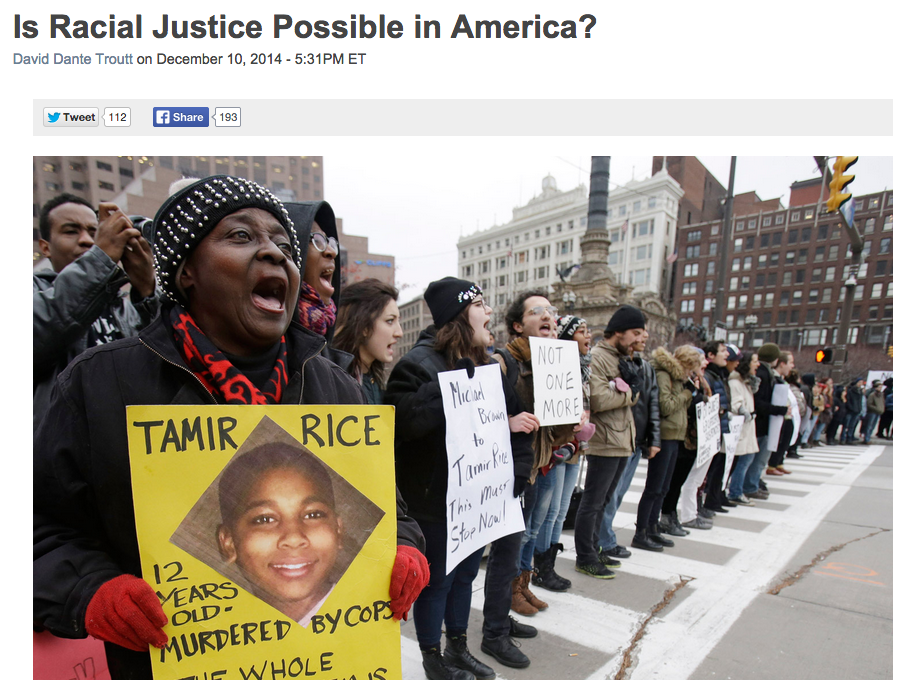 “Surrender is the heart of the legal standard for the use of deadly force by police. When confronted with an officer’s weapon, you must back down quickly and unambiguously or die. The law demands surrender, and men like Michael Brown do not show enough of it. This terrible fact—a one-sided battle of stereotypes and a conversation cut short between two young men—leaves us to wonder what justice would be in cases like this.”
“Surrender is the heart of the legal standard for the use of deadly force by police. When confronted with an officer’s weapon, you must back down quickly and unambiguously or die. The law demands surrender, and men like Michael Brown do not show enough of it. This terrible fact—a one-sided battle of stereotypes and a conversation cut short between two young men—leaves us to wonder what justice would be in cases like this.”
. . .
December 19th, 2014 (click on the image to go to the original link)
December 20th, 2014
. . .
December 30th, 2014
. . .
January 14, 2015 …I just came across this survey data covering opinion about the verdicts in Ferguson and Long Island. It is from about a month ago.
. . . .
January 22, 2015
March 2, 2015
“Blacks accounted for 86 percent of traffic stops in 2013 but make up 63 percent of the population, according to the most recent data published by the Missouri attorney general. And once they were stopped, black drivers were twice as likely to be searched, even though searches of white drivers were more likely to turn up contraband.”
March 4th, 2015
Justice Department finds racialized patterns within the action of the Ferguson Police Department.
But clears Darren Wilson of any charges…
. . .
My article in Contexts on teaching about Ferguson from a sociological perspective…
. . .
March 5, 2015
Read the full justice department report here
. . .
New York Times visual graphics of “what happened in Ferguson” (click the image to go to the full story)
. . .
A good article (that I use in my class) on the patterns of and institutional support for the epidemic of police killings of unarmed black males:
Common structure:
- Absence of external necessity
- Confrontation created by police
- Force obedience
- Reduce to an object
- Use of lethal force
. . .
Friday, March 6th, 2015
As usual, click on the image for a link to the full story.
“The judge was also named among a group of white Ferguson officials found by Department of Justice investigators to be writing off citations for themselves and friends while punishing residents for similar offenses.”
“Mudd, 64, was linked to an email sent in November 2008 which suggested Barack Obama “would not be president for very long because ‘what black man holds a steady job for four years?’,” according to the St Louis Post-Dispatch, which first reported the officers’ names. Henke, 59, was said to have been associated with an email sent in May 2011 that stated: “An African American woman in New Orleans was admitted into the hospital for a pregnancy termination. Two weeks later she received a check for $5,000. She phoned the hospital to ask who it was from. The hospital said, ‘Crimestoppers’.””
White privilege?
“The federal investigators found that in March 2014, a friend of a relative of the clerk emailed her with a scanned copy of a ticket and asked “if there was anything she could do to help”. The clerk responded: “Your ticket of $200 has magically disappeared!”, the report said. The clerk had at least one more ticket dismissed for the same person three months later.”
Back from early February…
… “What we’re seeing is a growing effort to generate revenue off the backs of the poorest using the police and court system,” Karakatsanis said, adding that the practice had exacerbated tensions between citizens and authorities in Ferguson.
“When you actually talk to the people living in the communities, one of the most central issues is the constant harassment and threat of incarceration because of their poverty,” Karakatsanis said.
. . .
March 4th, 2015
. . .
March 10th, 2015
“The Justice Department report accused city officials of running the Municipal Court system as a moneymaking venture and having a racially biased police force that regularly violated people’s constitutional rights.
In another instance outlined in the report, Mr. Shaw acknowledged a Council member’s complaints that the municipal judge was not doing a good job, but noted that “the city cannot afford to lose any efficiency in our courts, nor experience any decrease in our fines and forfeitures.”
. . .
. . .
March 14th, 2015
“Now, eight candidates, many first-time political hopefuls, are trying to fill three of the seven Council seats; all three are being vacated by members who decided not to run again. City officials said the candidacies were unprecedented: Four African-Americans are running this year, compared with a total of three in Ferguson’s previous 120 years.”
. . .
“VICE News and the New York Review of Books have partnered to create Talking Heads, a series about the big issues of the day as seen by the Review’s distinguished contributors. In this episode, Darryl Pinckney discusses his essay “In Ferguson.” He visited Ferguson, Missouri, in November, when a grand jury decided not to indict Darren Wilson, the white police officer who shot and killed unarmed black teenager Michael Brown. The dissatisfaction Pinckney felt as he followed news coverage of events in the area compelled him to visit and bear witness. Once on the ground, he discovered that despite sometimes violent expressions of anger within the community, the danger he felt was always from the police. “
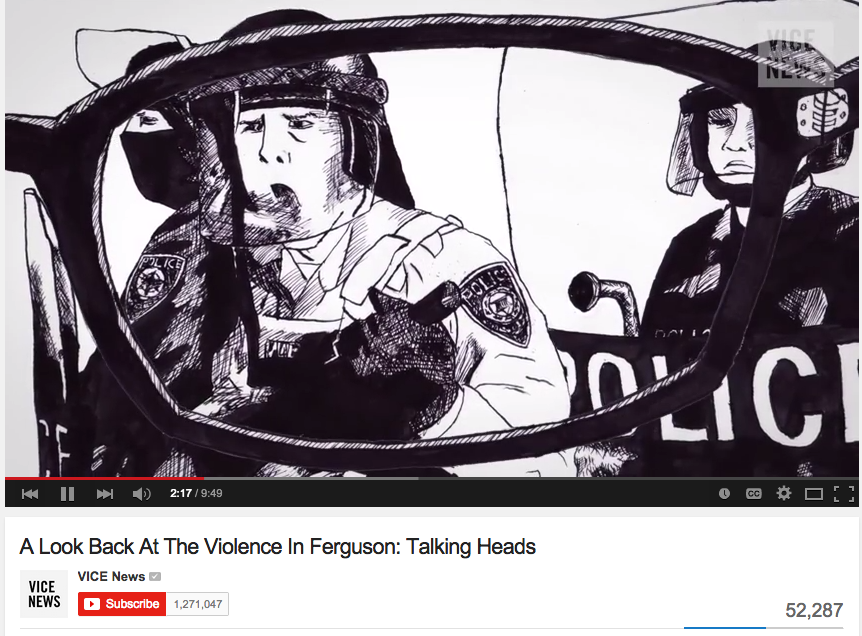 [click on the image to go to the video]
[click on the image to go to the video]
. . .
March 18th, 2015
Ferguson, MO Police chief resigns, gets a full year’s salary ($96,000) as severance. Click on the image to read the full story that also includes Ferguson residents’ efforts to recover.
. . .
March 20th, 2015
57% of White Americans think we talk too much about race.
. . .
April 6th, 2015
Will an organized movement be born out the killing of Michael Brown in Ferguson, Missouri by police officer Darren Wilson?
. . .
May 5th, 2015
New polling data shows that white and blacks now both have nearly the same negative outlook regarding race relations in the US. As other shootings and police killings of unarmed black men continue, a majority of whites are beginning to see that race relations are generally bad. However, it seems that whites still have greater trust in the police and police bias to using violence against blacks.
. . .
May 21, 2015
“‘It was done in a dignified way so I thought that was respectful,’ said Tony Rice, a veteran activist of the Ferguson protests, who watched the memorial be taken down piece by piece. ‘But I don’t think the plaque is enough. The old memorial symbolized the epicenter of where black lives actually matter. If you ever needed to question how much people care about an 18 year-old black man’s life you could point to that memorial.’”
. . .
. . .
July 14, 2015
An art exhibit here in Chicago contains a replica of a dead Michael Brown as he appeared on the streets of Ferguson after being shor by officer Daren Wilson. It is part of a show by artist Ti-Rock Moore on white privilege. The artist is white. Is this exploitation? How might the show be perceived differently if created by a black artist. The gallery owners are black and it is located in historically black Bronzeville neighborhood.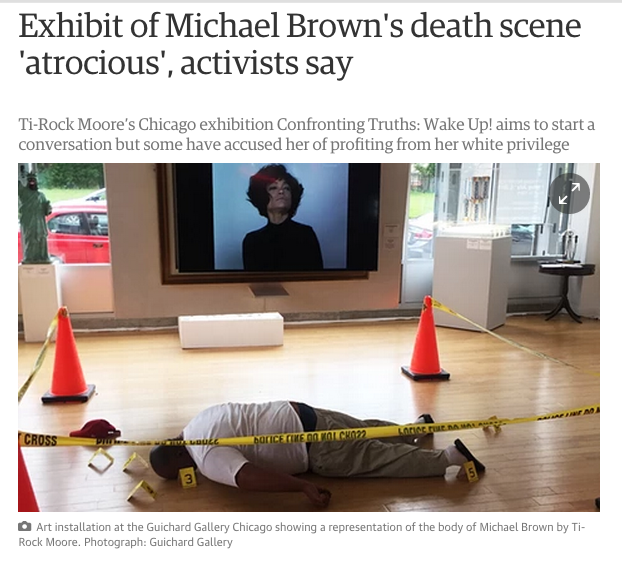
. . .
July 23, 2015
Another tragedy related to municipal police forces using SWAT teams in excess:
. . .
July 24th, 2015
New polling data on police and race from the New York Times:
. . .
A New Yorker article about Darren Wilson, the officer who shot Michael Brown in Ferguson, but was not indicted or found to have done anything wrong.
. . .
From the New York Times…
“Local prosecutors have historically paid no price for taking up residence in the pocket of the police department. That changed on Tuesday, when Democratic primary voters in the counties that include Cleveland and Chicago turned veteran prosecutors out of office for mishandling cases against police officers who shot and killed black citizens.
The defeats of Anita Alvarez, the state’s attorney of Cook County, Ill., and Tim McGinty, county prosecutor of Cuyahoga County, Ohio, show that many voters are no longer willing to tolerate cover-ups and foot-dragging in cases of killings by the police and other abuses. Still, it will take more than changing the name on the prosecutor’s stationery to reform the way such cases are handled.” Read the full commentary here.
. . .
A new documentary explores how the police became so militarized and what the consequences are.
. . .

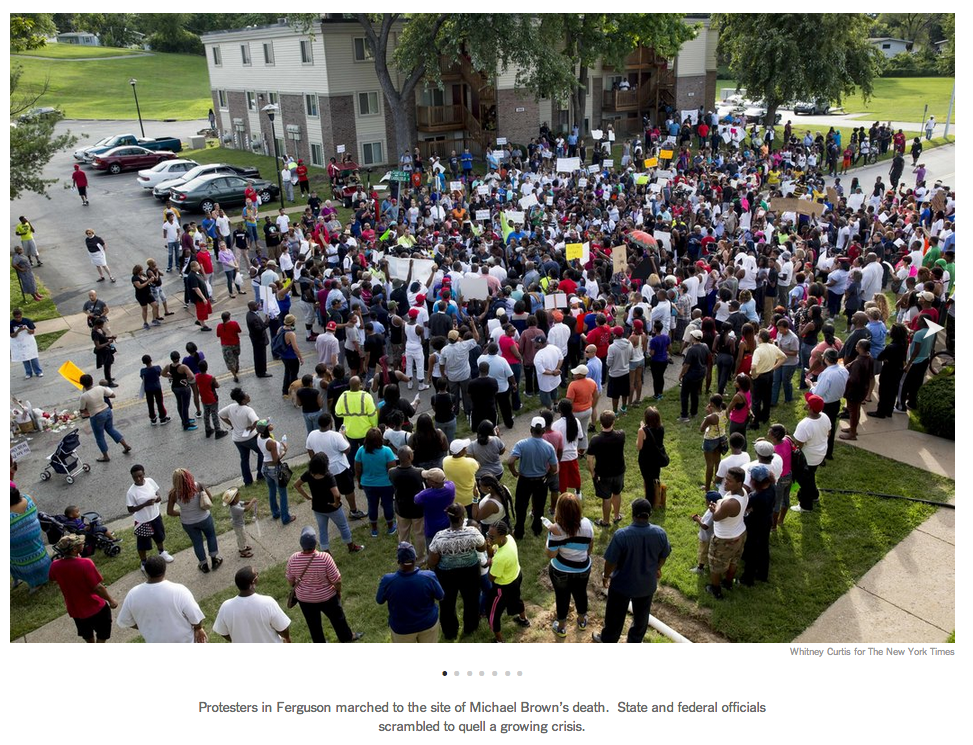
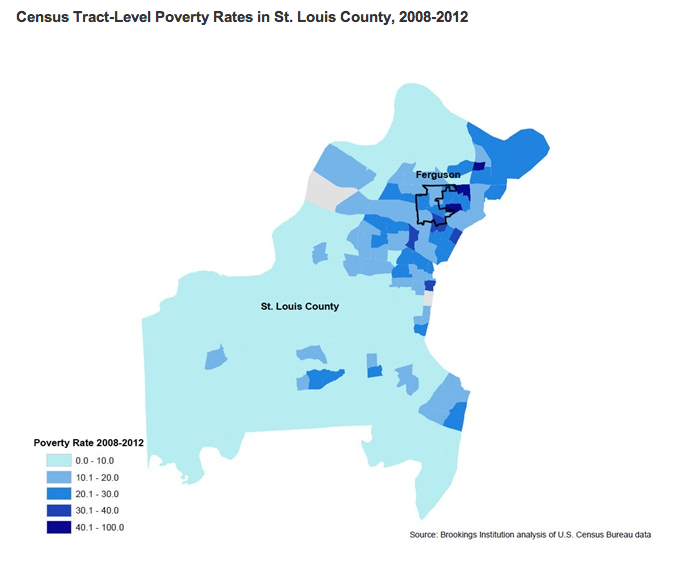
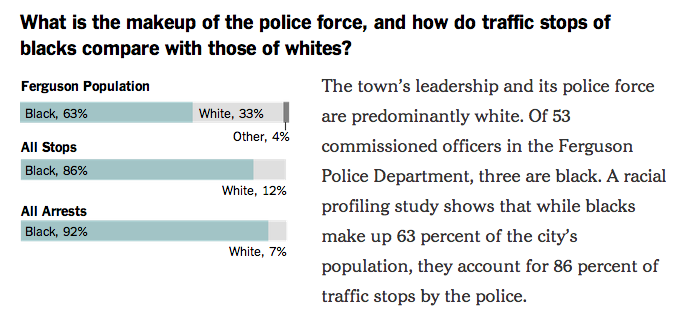
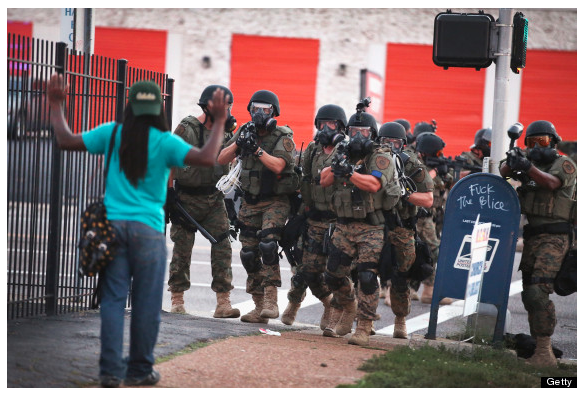
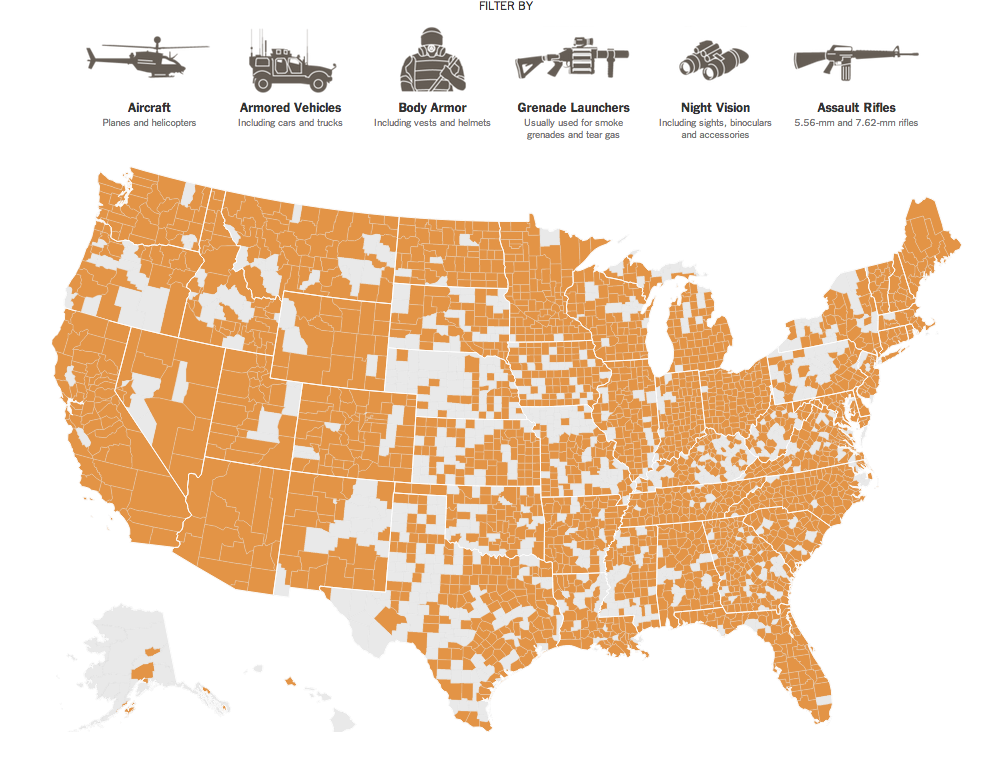
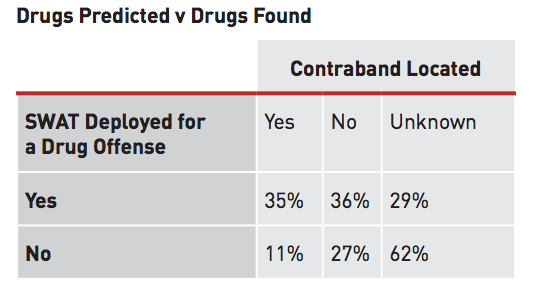
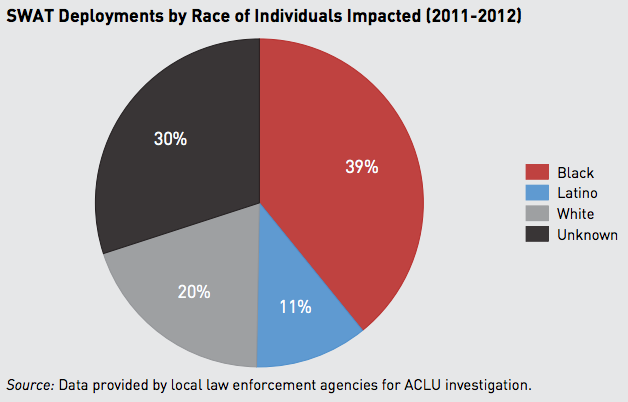
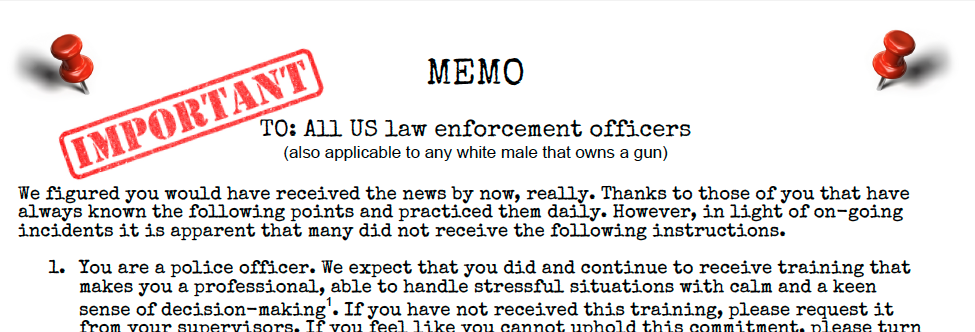
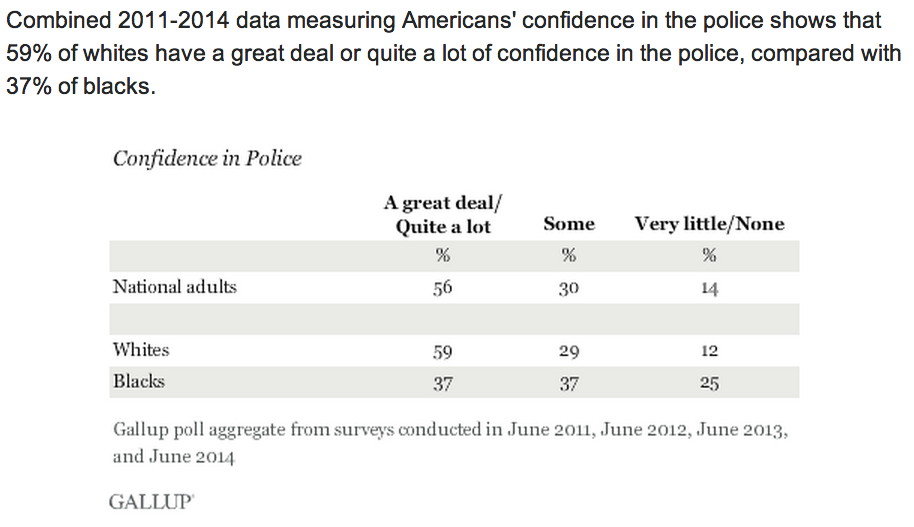
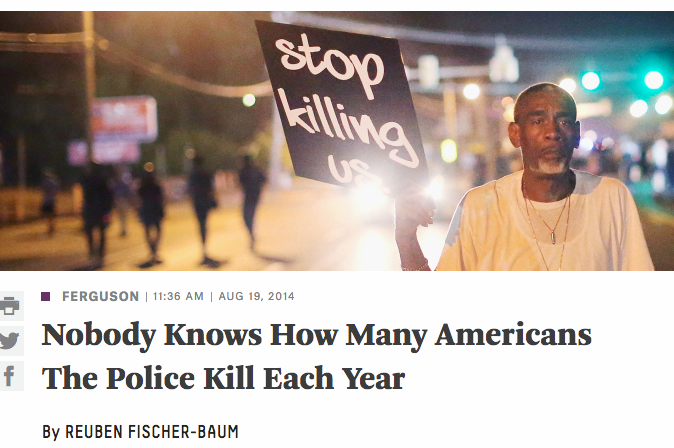
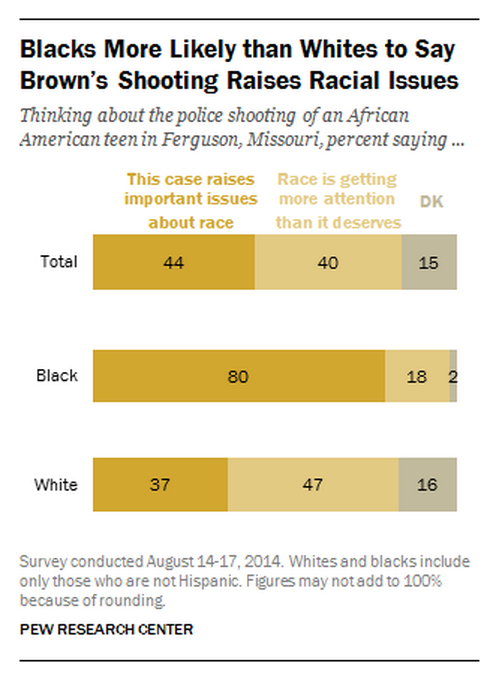
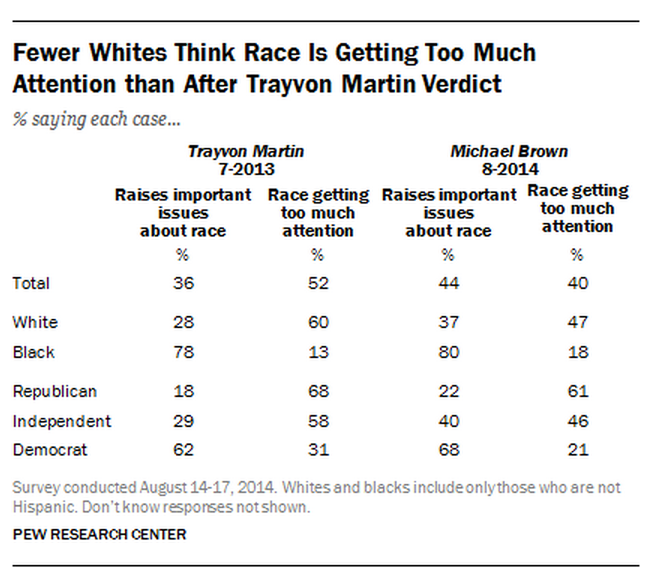
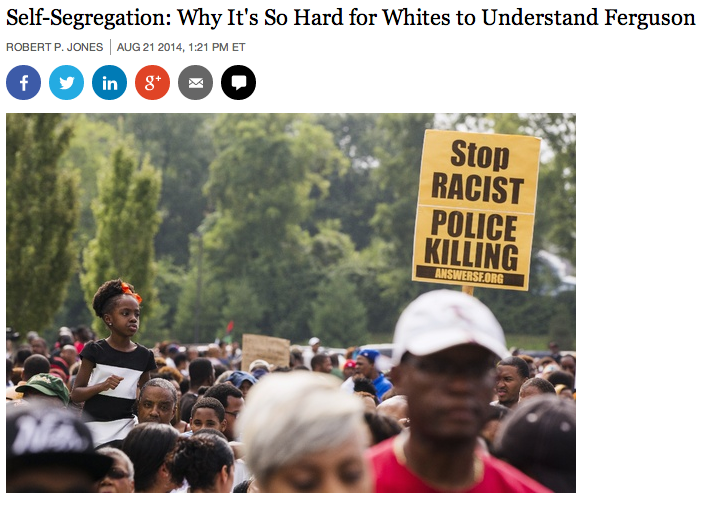
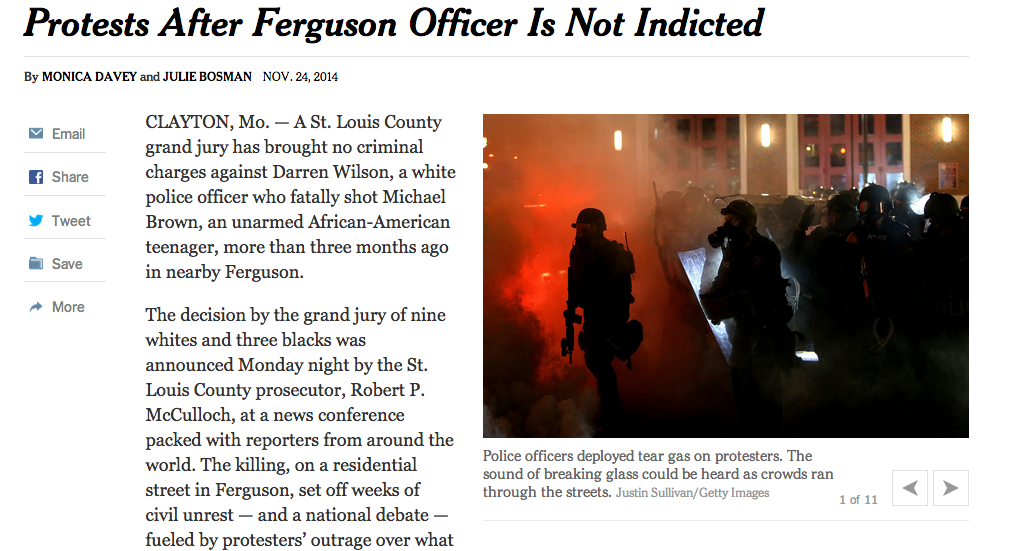
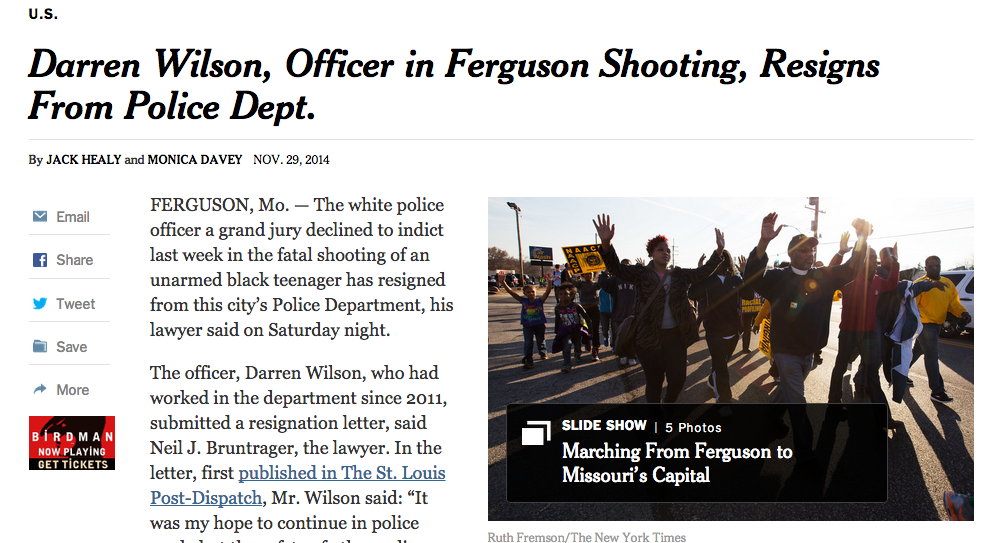
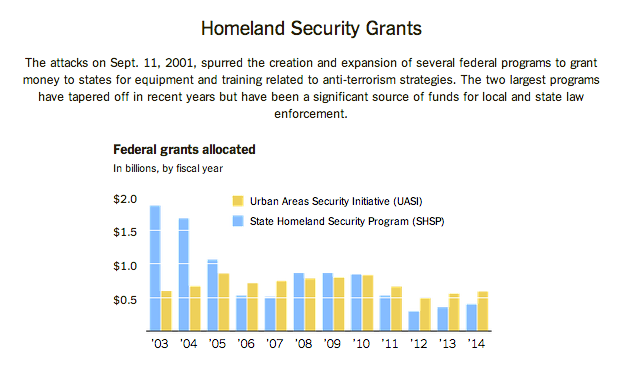
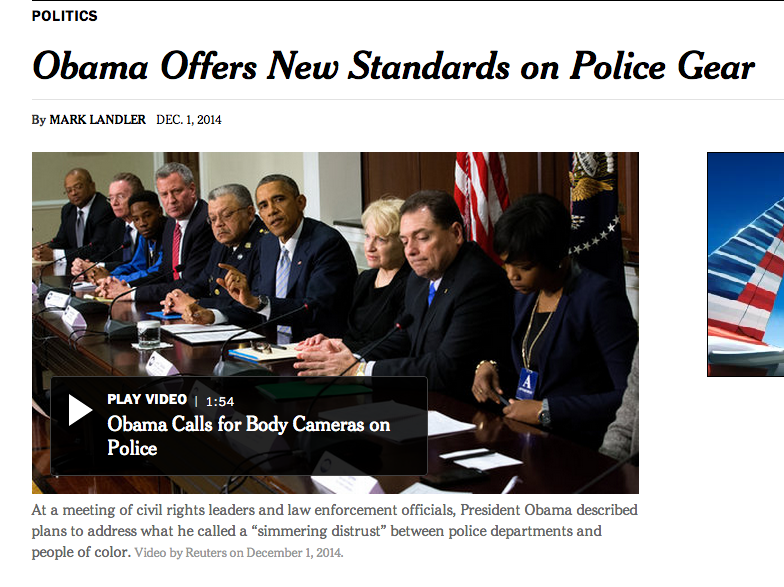
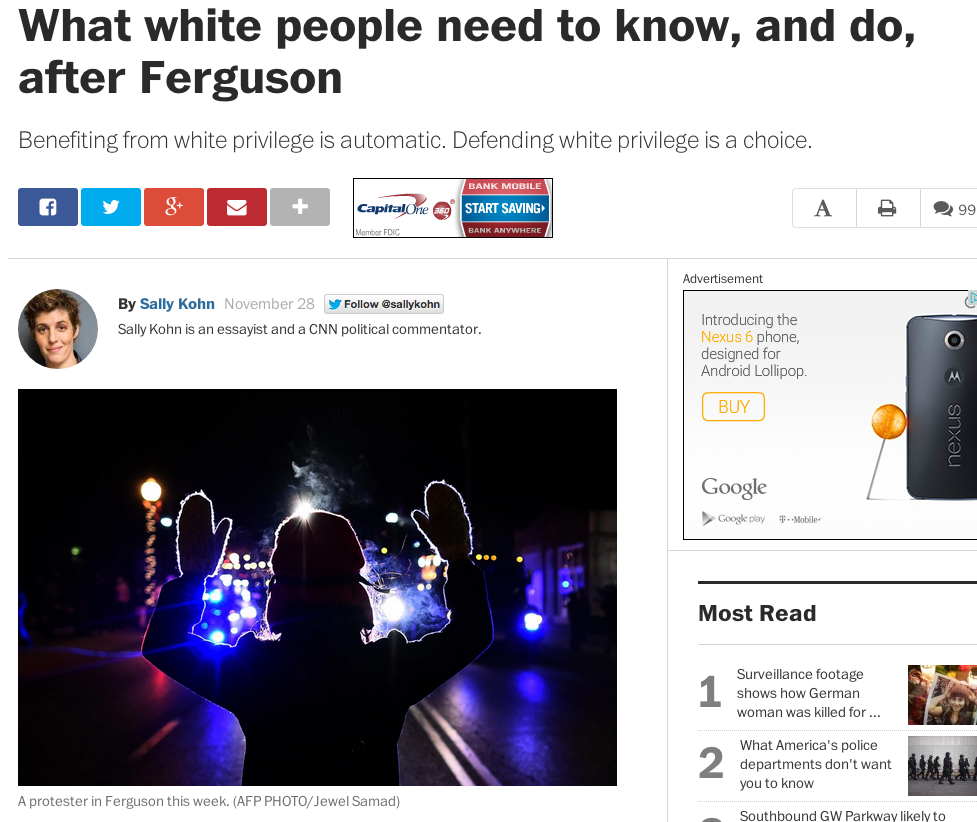
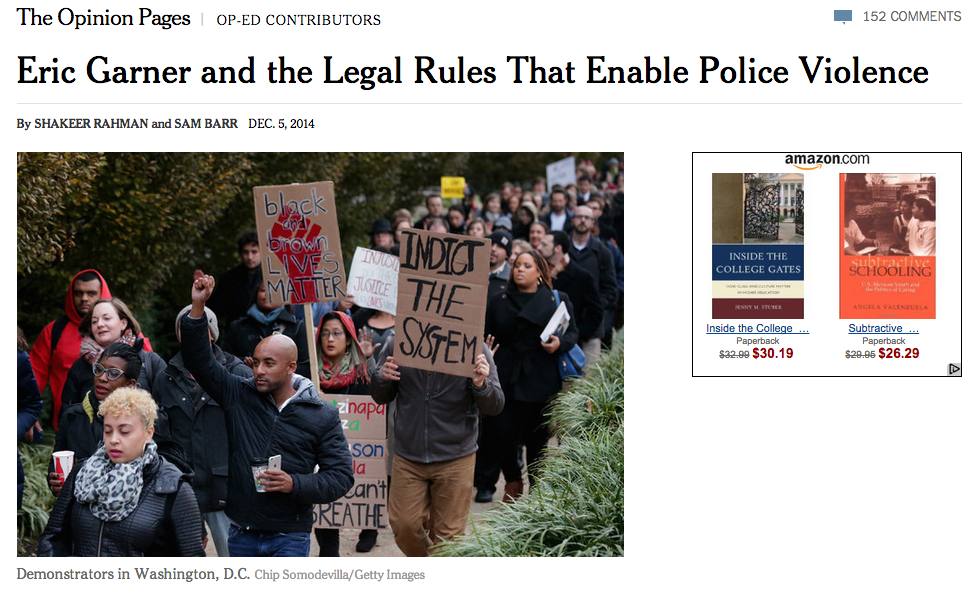
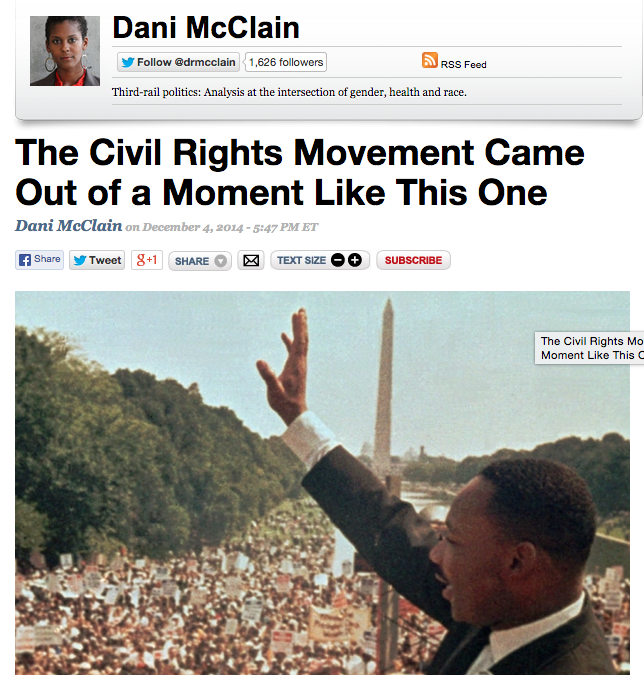

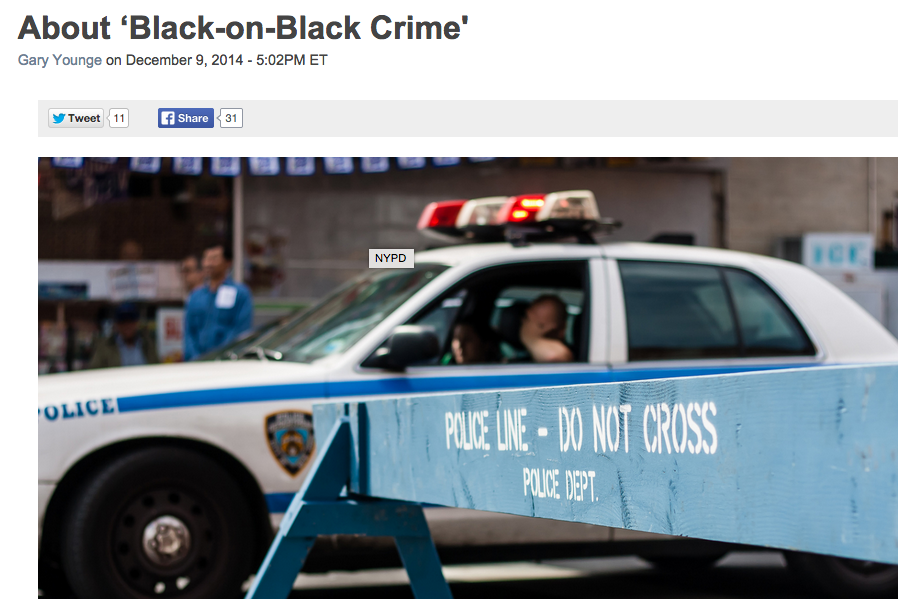
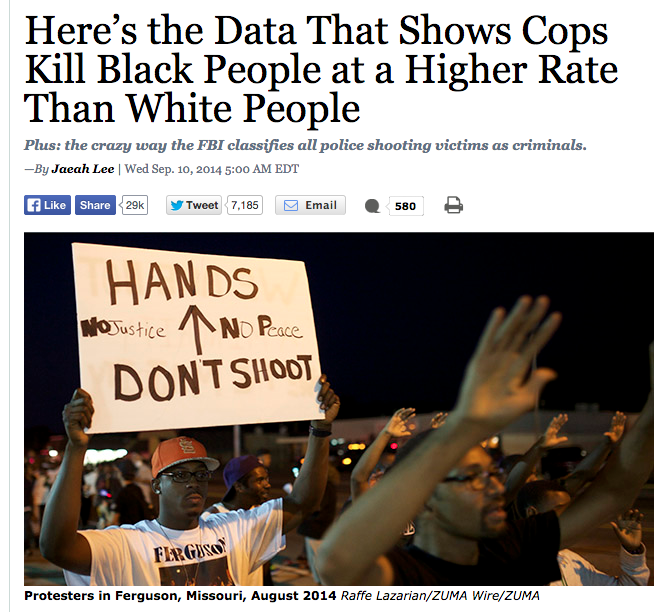
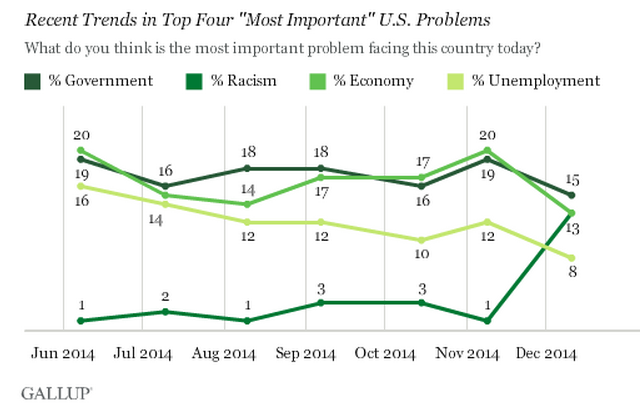
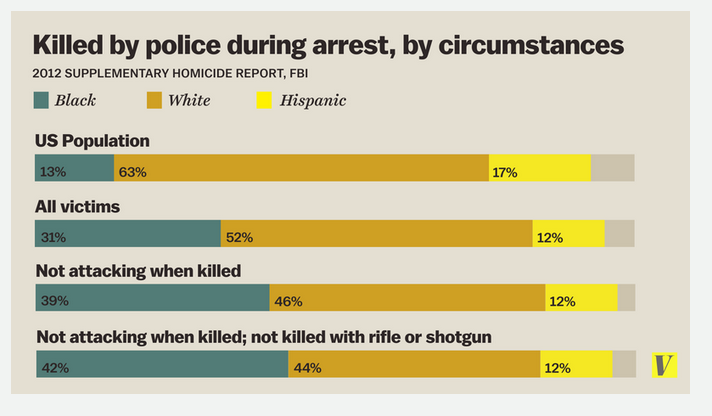
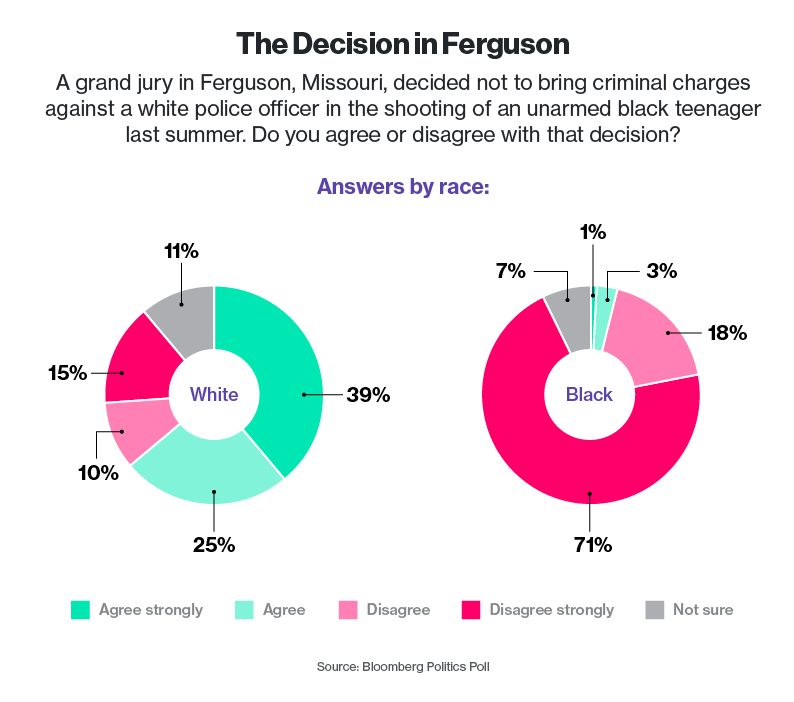
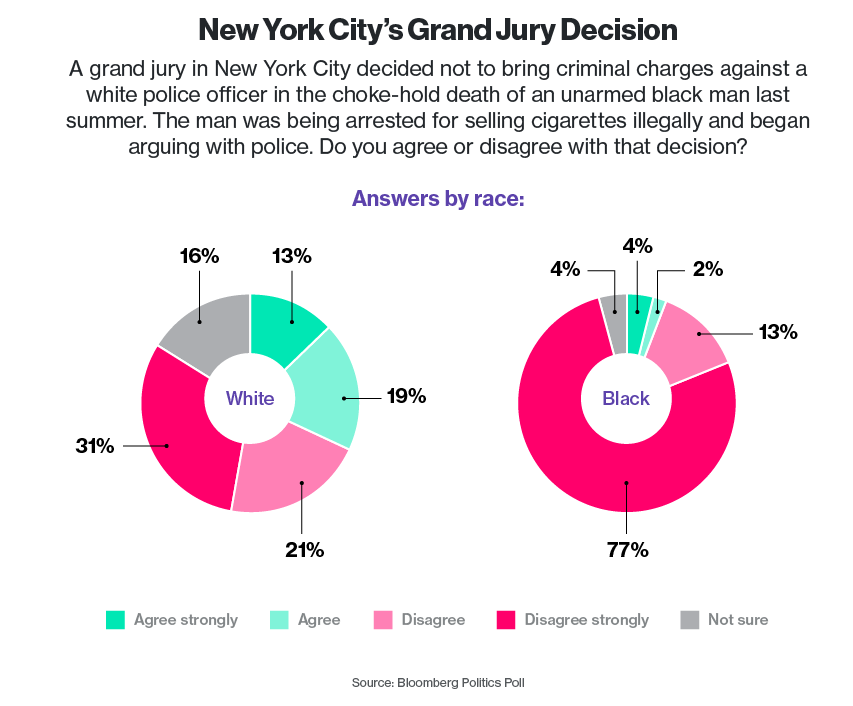

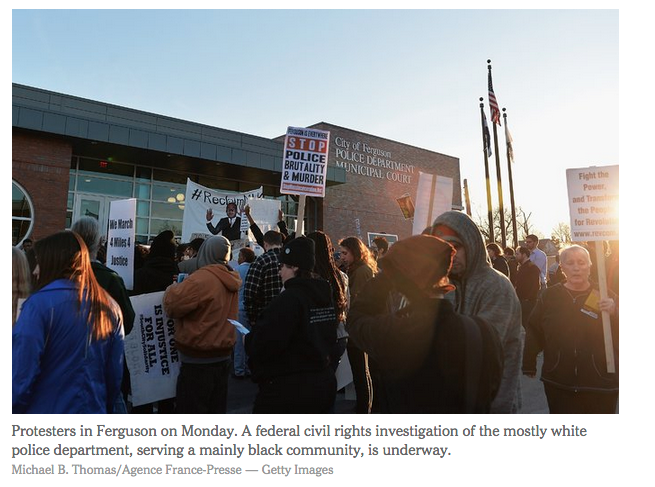

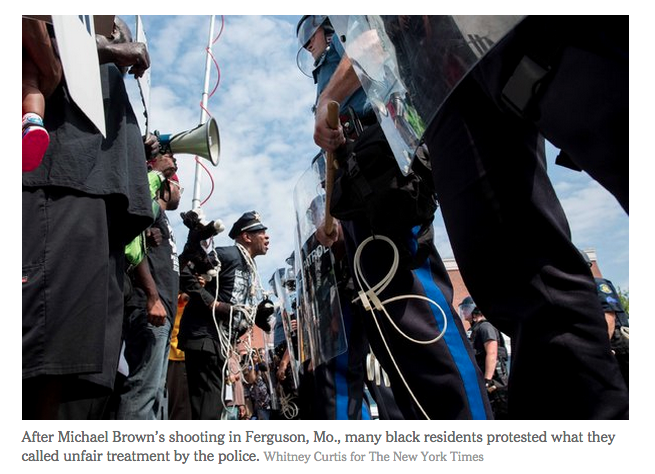
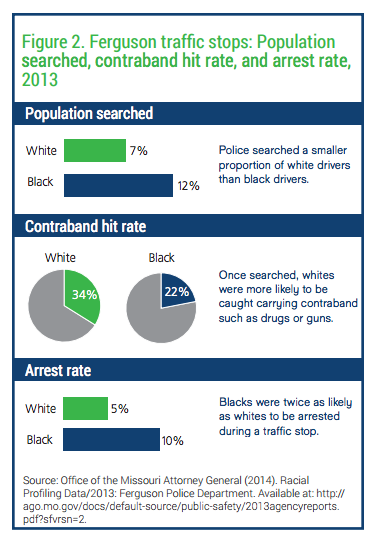
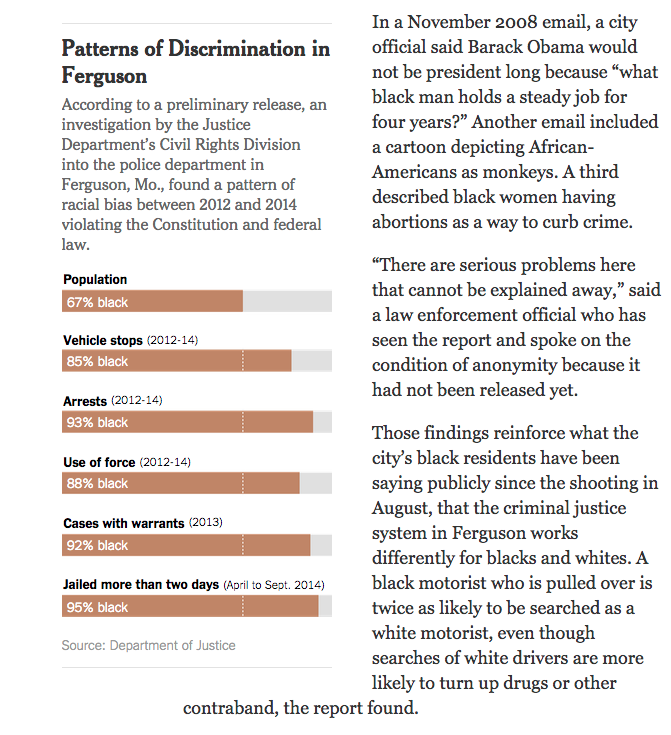

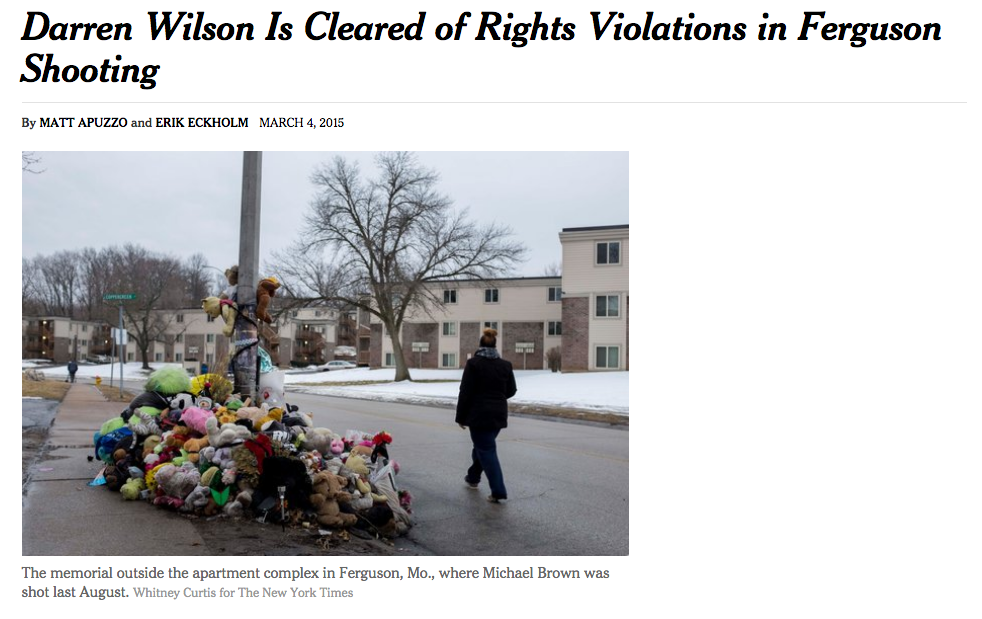
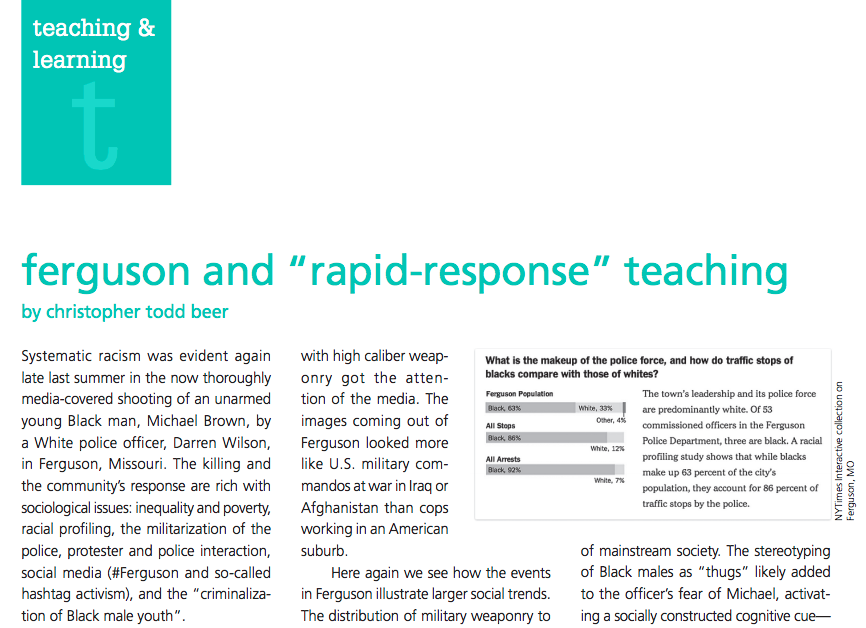
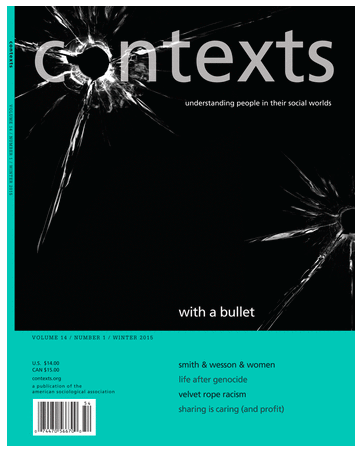
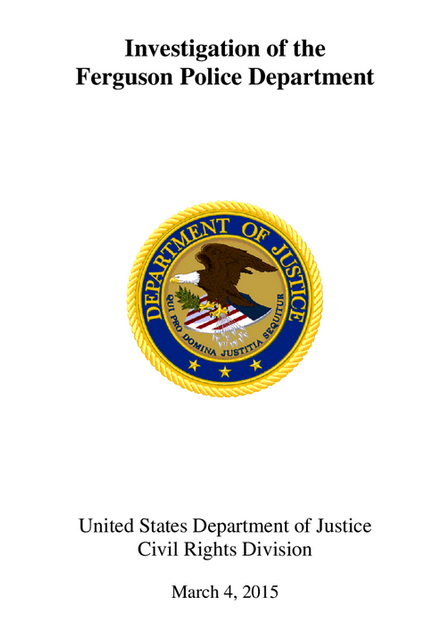

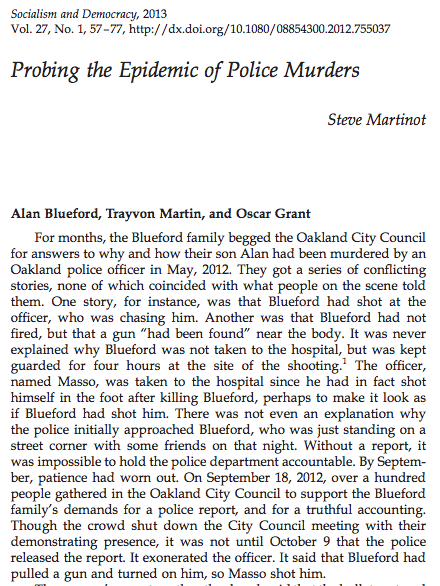
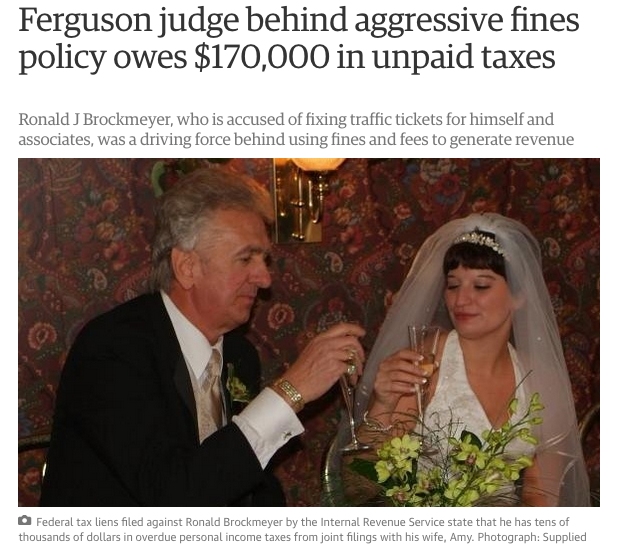
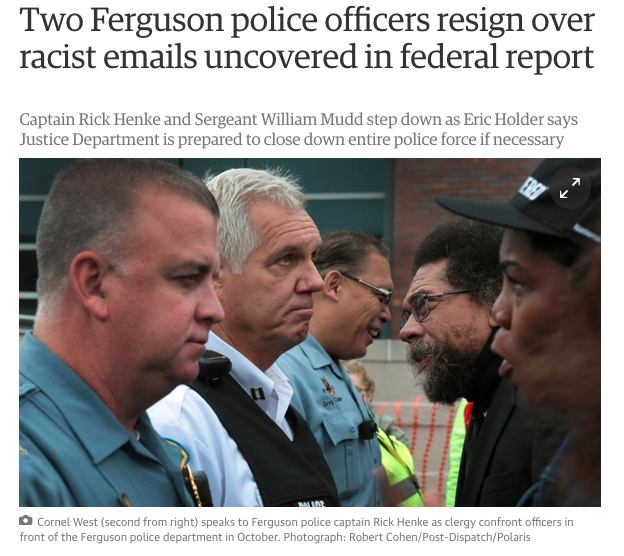
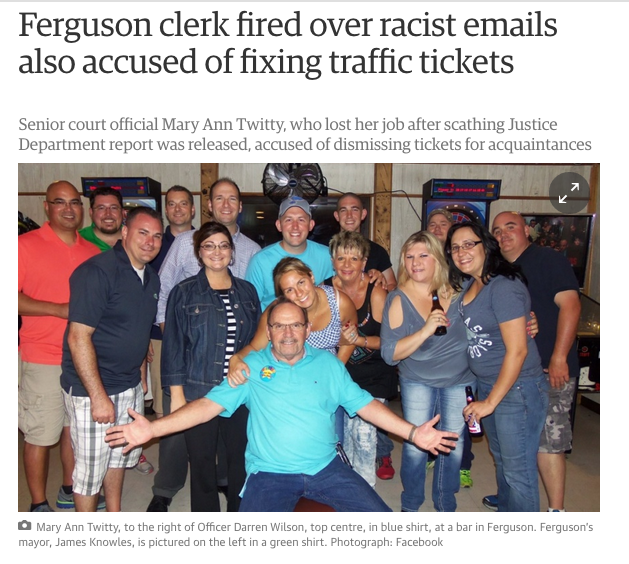

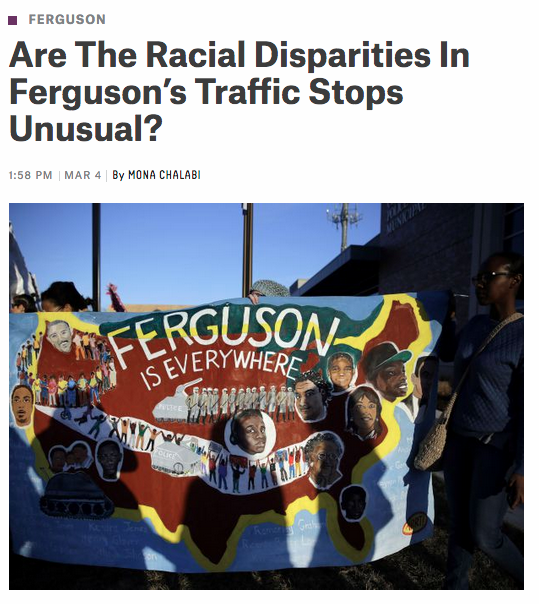


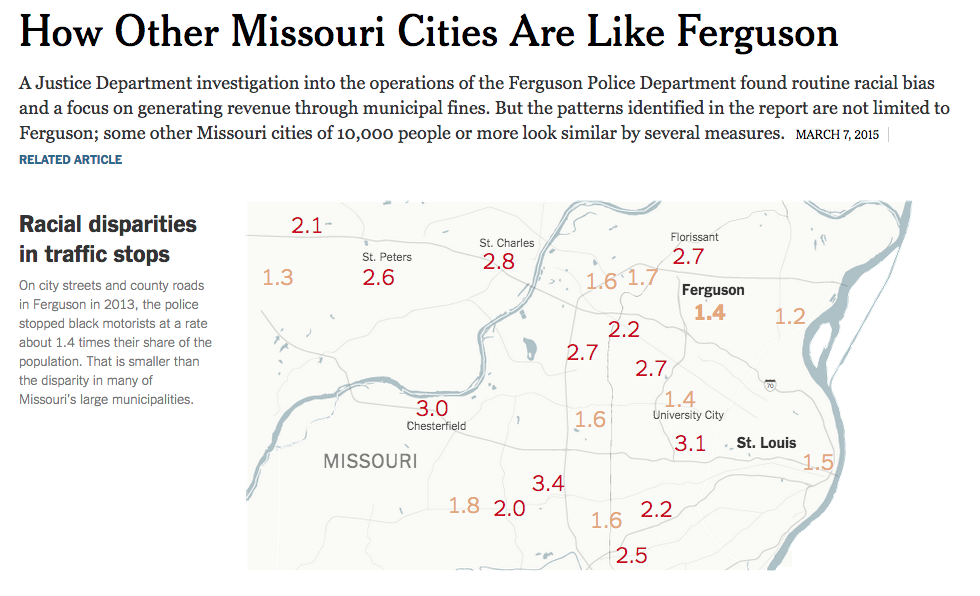
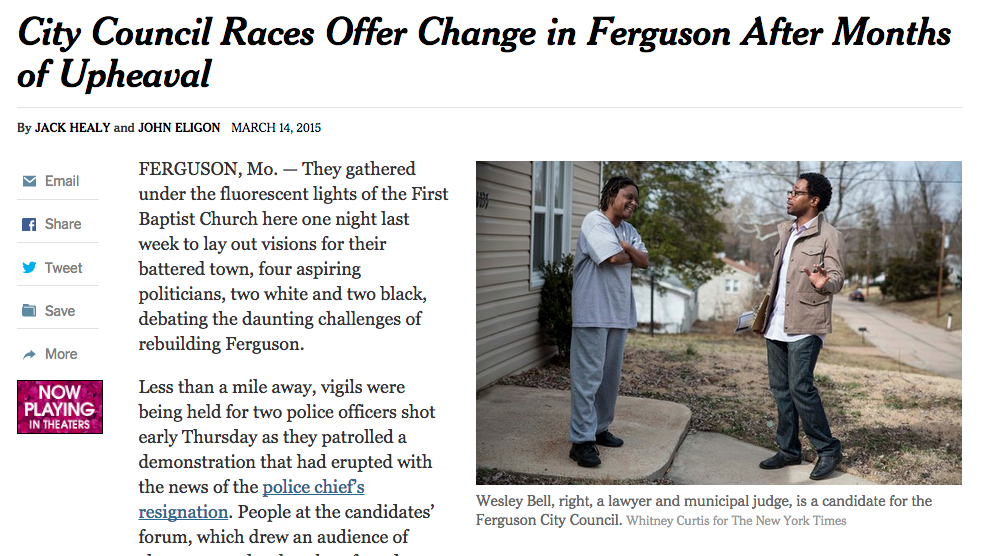
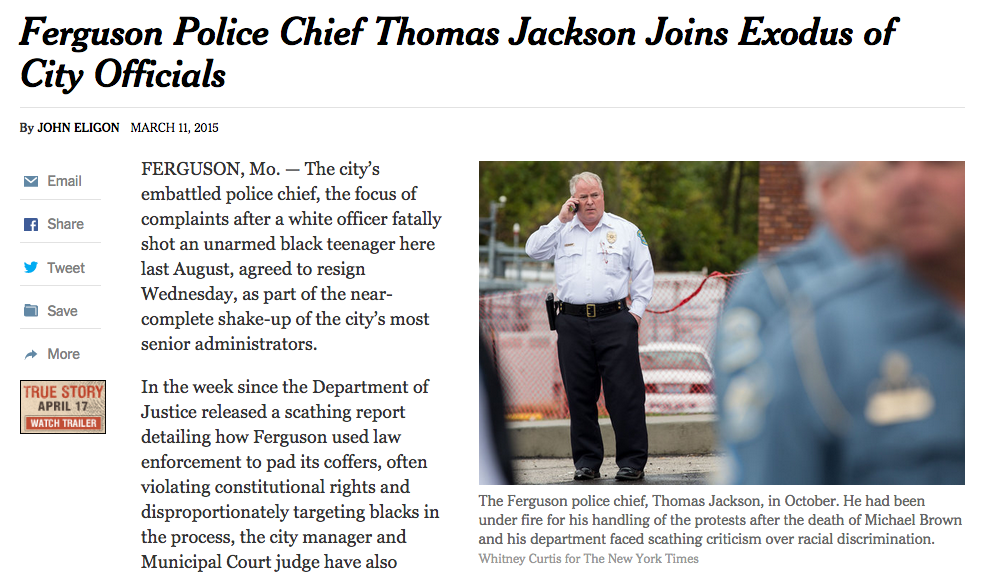
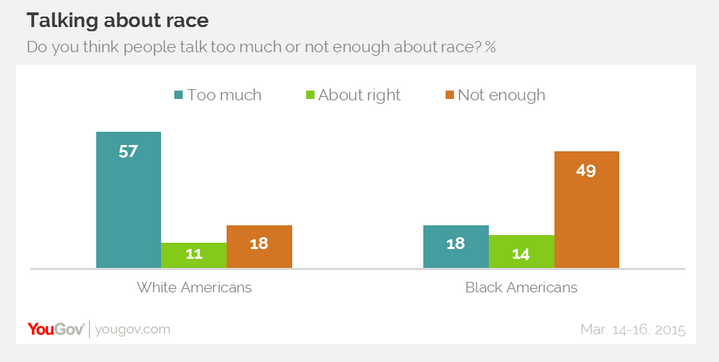
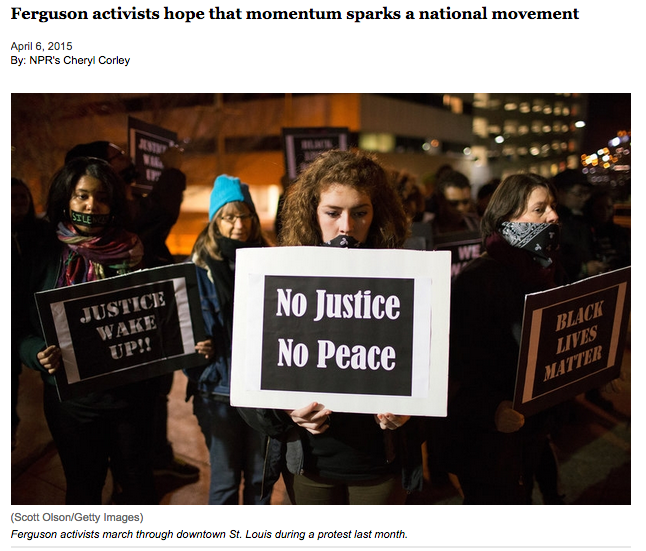
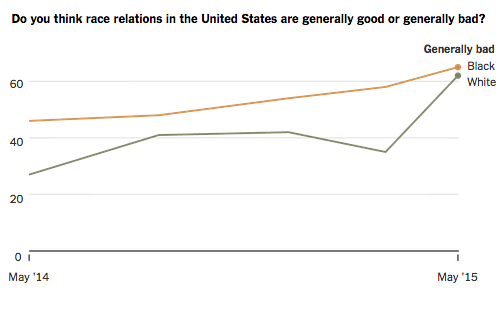
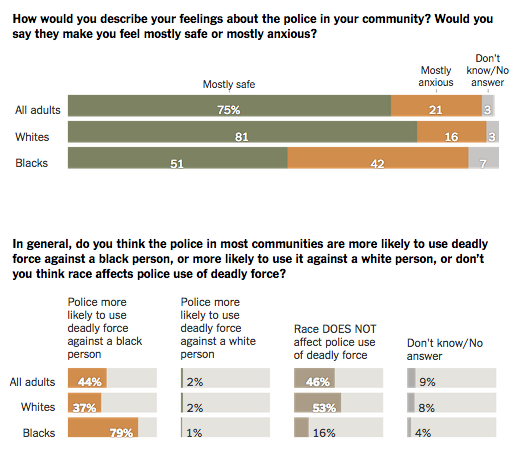
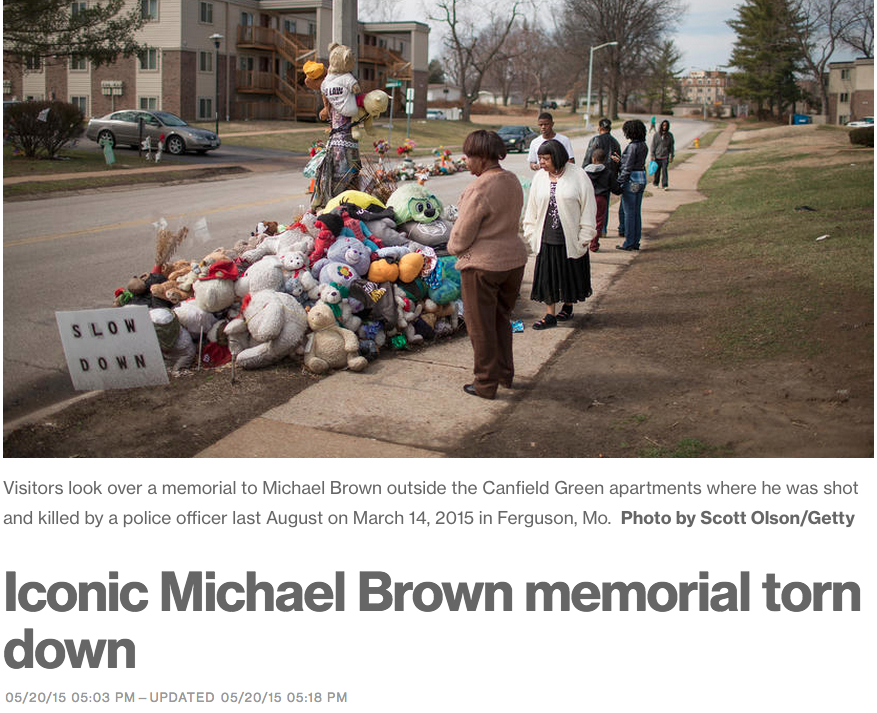
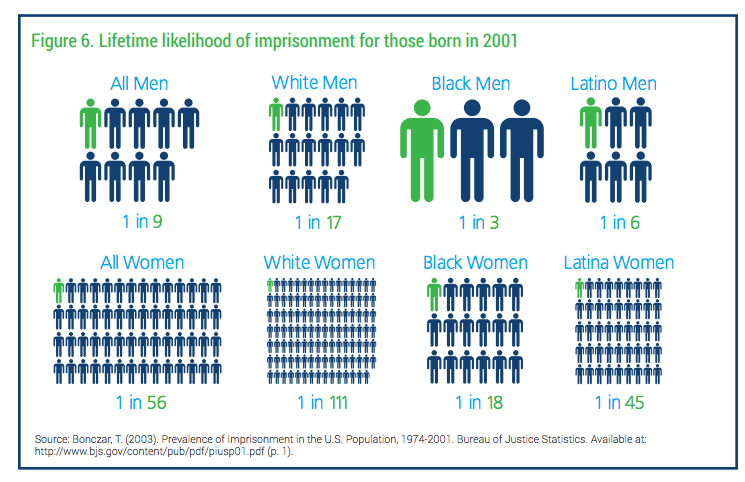
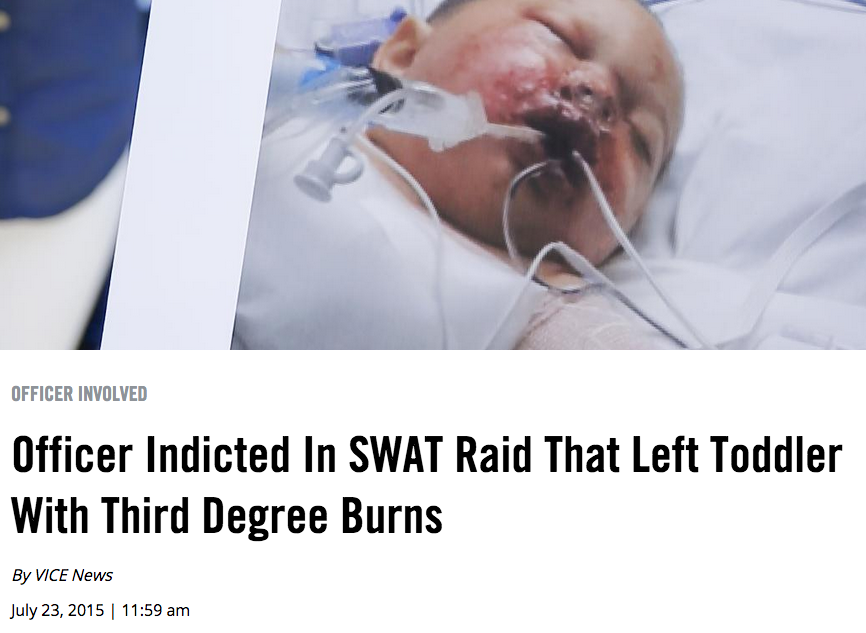
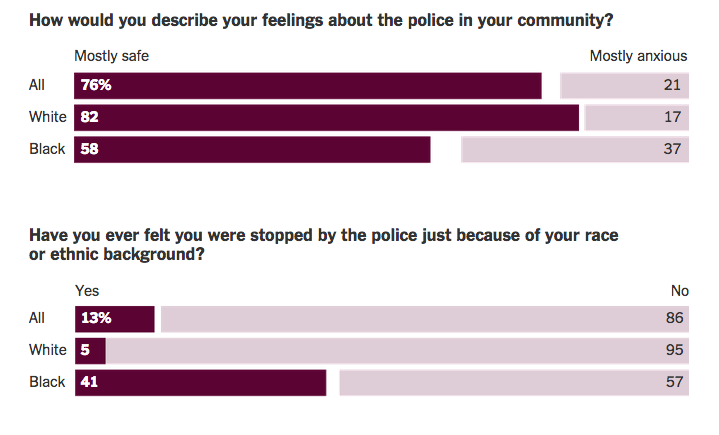
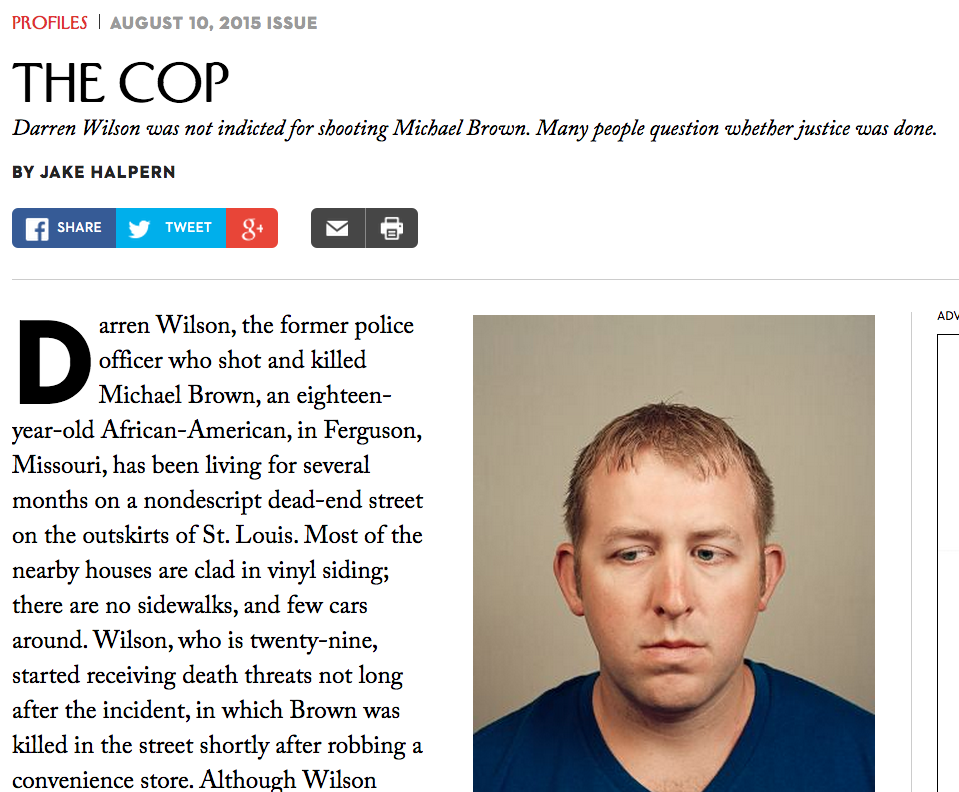
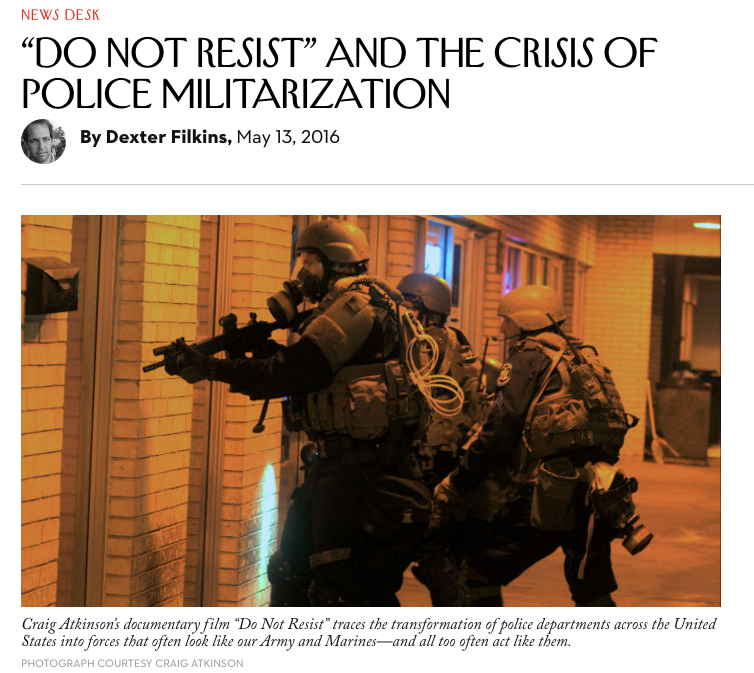
Comments 5
POLICE KILLING OF BLACKS: Data for 2015 - Sociology Toolbox — January 28, 2016
[…] Scott, Laquan McDonald, and others) or the subsequent protests (Freddie Gray in Baltimore and Michael Brown in […]
“BUT BLACKS COMMIT MORE CRIMES”: Scholars discuss conservative logic - Sociology Toolbox — July 25, 2016
[…] Todd: We saw some of this in Ferguson as racist emails between police officers and the city court clerk, which were revealed after the shooting of Michael Brown. […]
TOOLS FOR TEACHING SOCIOLOGY: Teach well. It matters. - Sociology Toolbox — December 7, 2016
[…] RACISM AND THE POLICE: The Shooting of Michael Brown in Ferguson. Systematic racism has been made evident again in the shooting of an unarmed young Black man, Michael Brown, by a police officer in Ferguson, Missouri. Pulling stories directly from recent news headlines is one way to get students’ attention and demonstrate the abundant relevance of the sociological perspective. The New York Times has a timeline of the events that serves as a useful starting point (from the mainstream media) to share the events with students that may have not kept up with the story. […]
POLICE KILLING OF BLACKS: Data for 2015 and 2016 - Sociology Toolbox — January 3, 2017
[…] Scott, Laquan McDonald, and others) or the subsequent protests (Freddie Gray in Baltimore and Michael Brown in […]
“BUT BLACKS COMMIT MORE CRIMES” | William Anton Lee [Notebook] — June 23, 2020
[…] Todd: We saw some of this in Ferguson as racist emails between police officers and the city court clerk, which were revealed after the shooting of Michael Brown. […]